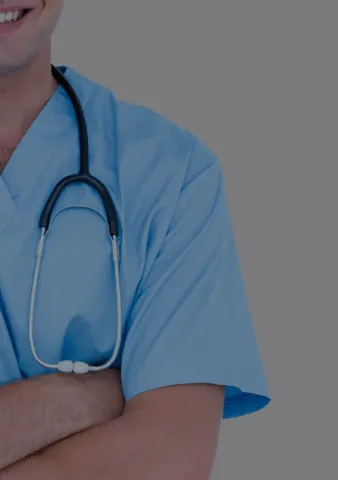
Breast Cancer Screening
Your Breast Cancer Screening in Tunisia at Affordable Prices
A simple act can save lives: consider regular breast cancer screening. Rapid care, reliable results and personalized medical support.
How does it work?
What is Breast Cancer Screening?
Breast cancer screening involves a series of examinations to check the health of a woman’s breasts before any signs or symptoms of the disease appear. Women are advised to inquire about different screening options from a certain age. While it cannot prevent breast cancer, screening can help detect the disease at an early stage, when treatment is easier. Don’t hesitate to discuss appropriate breast cancer screening tests and the best time to have them with your doctor.
From what age should breast cancer screening be done?
For women aged 50 to 74, it is recommended to have a mammogram every two years if they have a risk of breast cancer. For those aged 40 to 49, it is important to discuss with their doctor or healthcare professional when to start and how often to have a mammogram. It is also crucial for women to weigh the benefits and risks of screening before deciding to start mammograms before age 50.
Where can I go for screening?
To detect breast cancer, you can have a test done at a clinic, hospital or radiology center. Please contact us if you are interested in breast cancer screening.
What are the different methods of breast cancer screening?
Breast cancer screening by mammography
To optimize early detection of breast cancer, mammograms are the most effective method. By regularly undergoing these examinations, the chances of developing the disease can be significantly reduced. Today, for most women, a mammogram remains the best way to screen for breast cancer.
Breast cancer screening by breast magnetic resonance imaging (MRI)
A breast MRI uses magnets and radio waves to take pictures of the breast. MRI is used with mammograms to screen women who are at high risk of developing breast cancer. Because breast MRIs can appear abnormal even when there is no cancer, they are not used for women at average risk.
Breast cancer screening by clinical breast examination
To better take care of your health, it is important to have a clinical breast examination. This involves having a doctor or nurse examine you using their hands to check for any lumps or other changes in your breasts. If you notice anything unusual, do not hesitate to go directly to a specialist for a more thorough assessment. After all, your health is paramount and should not be taken lightly.
Breast cancer screening by breast self-examination
In order to better understand the meaning of these words, it is important to emphasize that self-examination is an essential examination for screening for breast cancer. When you notice any change in the shape of your breasts, or other symptoms or changes, it is crucial to inform your doctor.
Benefits and risks of breast cancer screening
To ensure the best efficiency and safety, it is essential to discuss with your doctor before undergoing a screening test such as a mammogram. Indeed, each test has its own advantages and limitations.
Advantages of screening
It is crucial to highlight the major advantages of breast cancer screening, which is essential in the fight against this disease. Among these numerous advantages, one of the most important is early detection which offers better chances of success in treatment. Indeed, when breast cancer is detected at an early stage, it is often easier to manage and therapeutic options are more diverse. Thus, it is possible to quickly initiate appropriate medical interventions such as surgery, radiotherapy or chemotherapy, which can improve outcomes and increase survival chances.
Risks of screening
The harms can include false positive results, when a doctor sees something that looks like cancer but isn’t. This could lead to more tests, which can be costly, intrusive, time-consuming and anxiety-provoking for those involved. Tests can lead to overdiagnosis and overtreatment, where doctors detect a cancer that would not have caused symptoms or problems, or even might have disappeared on its own. Treatment of these unnecessary cancers is called overtreatment and can include procedures such as surgery and radiation therapy for breast cancer, resulting in unwanted side effects. In addition, breast cancer screening can also lead to inconveniences such as pain during the procedure and exposure to radiation from the mammogram itself. Although the amount of radiation is low, there are potential risks of repeated exposure. It is clear that the benefits far outweigh the drawbacks, despite the remaining uncertainties. It is clear that the benefits far outweigh the drawbacks despite these uncertainties.
Is a mammogram painful?
Having a mammogram is uncomfortable for most women but not painful. Some women find it painful. A mammogram only takes a few minutes. What you feel depends on the size of your breasts and how much pressure is put on them. Your breasts may be more tender if you have your period or are about to have it. The radiologist will read the mammogram. He or she will look at the X-ray for early signs of breast cancer or other problems.
Tips before a mammogram
- Try not to have your mammogram the week before or during your period. Your breasts may be tender or swollen then.
- On the day of your mammogram, do not wear deodorant or perfume. These products can appear as white spots on the X-ray.
Our advantages


Have a complete health check-up with breast cancer screening in Tunisia
If you are over 50 and considering breast cancer screening, it is strongly recommended to have a complete health check-up every 2 years. You can contact Tunisia Destination Santé to see the available health check-up formulas.
Your health, our priority.
Request your free quote.
Frequently Asked Questions
Although rare, breast cancer can also affect men. Screening can help detect cancer at an early stage, thus increasing the chances of successful treatment and survival.
Women with breast implants may require special mammography techniques to ensure that the breast tissue behind the implants is properly visualized and assessed.
Yes, breast ultrasounds and sometimes MRIs can be used for screening in pregnant or breastfeeding women, as these methods do not use X-rays.
In young women, breast tissue is often denser, which can make mammograms less accurate. Ultrasounds or MRIs may be recommended in addition for better assessment.
Yes, in addition to cancer, screening can detect benign abnormalities such as cysts, fibroadenomas and other conditions that may require monitoring or treatment.
High breast density can mask tumors on mammograms, making screening more difficult. Women with dense breasts may require additional tests such as MRI or ultrasound.
Women with a family history may start screening earlier and have additional tests such as MRIs in addition to regular mammograms for more accurate detection.
Recent developments include artificial intelligence for mammogram interpretation, tomosynthesis mammography (3D) for more detailed images, and genetic testing to assess risk.
The risk of breast cancer increases with age, so screening after menopause remains crucial to detect cancer at an early stage and increase the chances of successful treatment.
Even after prophylactic mastectomy, there remains a small risk of breast cancer, and regular follow-up with clinical examinations and possibly imaging is recommended to monitor for any abnormalities.
